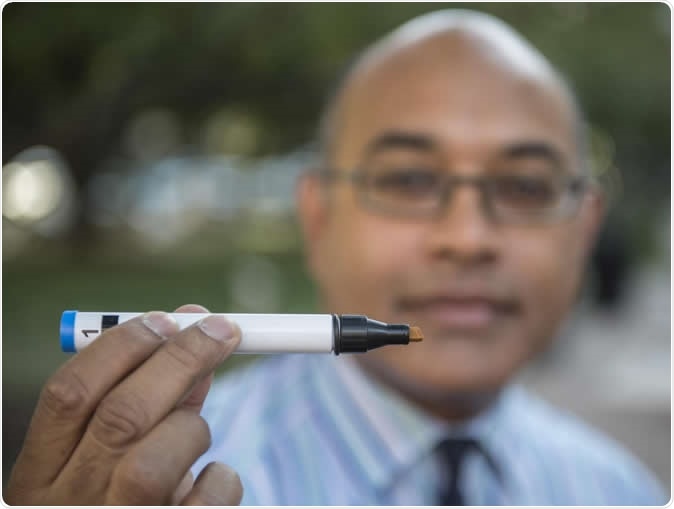Scientists have found that losing the sense of smell is an early sign that a person is at risk of development of dementia later in life. The study entitled “Olfactory Dysfunction Predicts Subsequent Dementia in Older US Adults,” was published in the latest issue of the Journal of the American Geriatrics Society.
From their study, the researchers noted that elderly people who could not differentiate well between smells were at a greater risk of future cognitive decline. In their study 20 percent of the individuals who had a bad sense of smell were twice as likely to get dementia within five years of the study. They write that going by these results, the sense of smell could be used as an early diagnostic marker for dementia.
For the study the team of researchers looked at 3000 people between ages of 57 and 85 years. They were given to smell five different odours – orange, peppermint, rose, leather and fish. They were asked to guess the smell. The tool they used was called “Sniffin'Sticks” and it is essentially a felt-tip pen with the different odours instead of the ink. The tools is a well-tested and validated tool that can be applied to studies.

For both studies, the researchers used a well-validated tool, known as 'Sniffin'Sticks.' Image Credit: Rob Kozloff, for the University of Chicago Medicine
Results showed that approximately;
- 78.1 percent were deemed to have normal smell - 48.7 percent guess all five and 29.4 percent identified four out of five
- 18.7 percent guessed two or three out of five and were termed “hyposmic”
- 3.2 percent were termed “anosmic as they guessed one (2.2 percent) or none (1 percent) out of five
All of these participants were followed up for five years. All of the participants who had been unable to identify any of the smells developed dementia. On the other hand 80 percent of those who could identify only one or two odours out of five developed dementia. The connection between sense of smell and dementia was thus established.
Jayant Pinto, a professor of ENT surgery at the University of Chicago specializing in genetics and treatment of olfactory and sinus disease, in a statement said that sense of smell could be “an important early sign, marking people at greater risk of dementia”. He noted that the “sense of smell is closely connected with brain function and health” and that is clear from this study.
Study co-author Martha K. McClintock, PhD, the David Lee Shillinglaw Distinguished Service Professor of Psychology at the University of Chicago also explained that the sense of smell is one of the “evolutionarily ancient” sense that is the key to human cognition. She added that that the olfactory system has a system of stem cells that can regenerate and grow. So if there is a decrease in the sense of smell, it means that the brain is unable to “rebuild key components that are declining with age” – a key to “many different dementias”.
Pinto explained that predicting dementia is a difficult at present. However for GPs identifying defective sense of smell is an easy method by which they can predict the risk even before mild memory impairments set in. The underlying mechanisms of this condition too could be understood better he explained. Other experts believe that more work is necessary before this sense of smell could be used as a diagnostic tool to detect dementia early. Dr. Pinto agreed saying that more work would be necessary to make it a “clinical test”. It could however identify those at risk and these at-risk individuals could then be enrolled in “early-stage prevention trials” for dementia. This would provide deeper understanding of the disease and also help develop strategies to fight it. Pinto said, “Of all human senses, smell is the most undervalued and underappreciated - until it's gone.”
The study was funded by the National Institutes of Health, National Institute on Aging and the National Institute of Allergy and Infectious Disease and supported by Institute of Translational Medicine at the University of Chicago and the McHugh Otolaryngology Research Fund.
References